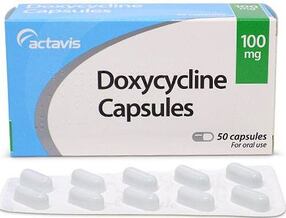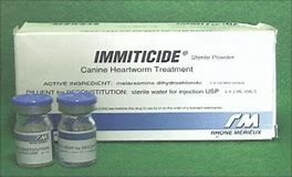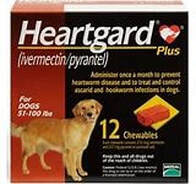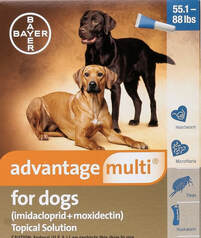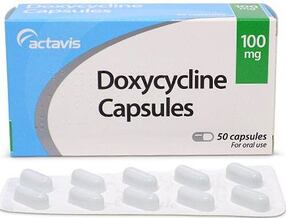HEARTWORM treatment
NOTE: The following information is not from a veterinarian, but from the German Shepherd Rescue of Central Texas volunteers' experience based on many years of fostering dogs that had heartworms or currently have heartworms. Please consider this advice when you consult with your own personal veterinarian.
Heartworms are spread through the bite of a mosquito. Since a mosquito can be anywhere, every dog, regardless if they are “inside only” is susceptible to getting heartworms. A mosquito can come into your house. Heartworms are not contagious. A blood test will tell you if a dog is heartworm positive or not. Monthly heartworm prevention is used to kill any baby worms that are growing inside of your dog. According to the American Heartworm Society, if left untreated, heartworms can cause severe lung disease, heart failure and damage to other organs in the body. Read more on their website: https://www.heartwormsociety.org/heartworms-in-dogs
Immiticide (Fast kill)
Immiticide Fast Kill standard treatment is only performed by a veterinarian and consists of a month of Doxycycline pills and then administering two injections of Immiticide 24 hours apart. The dog is to be kept strictly confined for the next four to six weeks. The injections must be given in a painful location — the muscle close to the dog’s spine in the lower back area. The worms start to die immediately. As their worms begin to decompose, pieces are “shed” into the dog’s bloodstream and filtered out through the dog’s lungs. The dog must be kept confined and any physical exertion must be kept to an absolute minimum, in order to prevent a rapid heart rate and/or increased blood pressure from forcing pieces of the dead worms into clogging the tiny blood vessels in the dog's lungs, causing embolisms.
Heartgard or Advantage Multi (Slow kill)
Heartgard or Advantage Multi plus Doxycycline - Slow kill method involves long-term use of the monthly heartworm prevention Heartgard (chewable) or Advantage Multi (topical) plus an antibiotic called Doxycycline prescribed by a vet. These heartworm preventative medications have some effect against the adult worms and should gradually eliminate them over a period of six months to two years depending on how invasive the heartworms are. Without treatment, the worms can live up to five years. Although this method is gentler than the use of Immiticide Fast Kill treatment, the danger from the dying worms is still present, and for a much longer period. The more active the dog, the higher the risk of causing an embolism.

